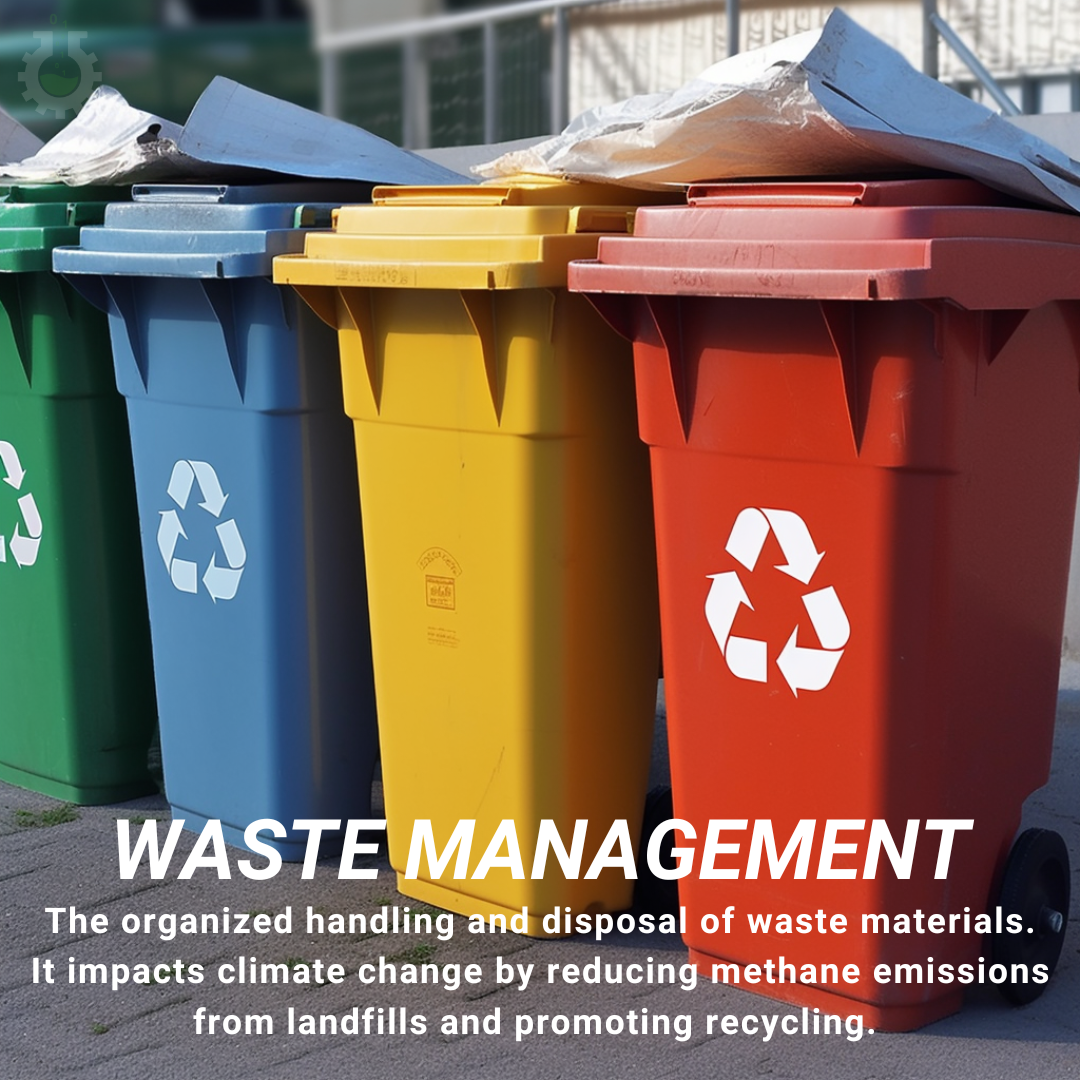September 20, 2023
Climate Change Poster Collection of the Day – Waste Management
Book a Demo
Today’s Climate Change Poster Collection highlights Waste management, a comprehensive procedure that encapsulates the collection, transport, treatment, and disposal of waste. It also includes the monitoring and regulation of the entire process, ensuring that it is conducted in the most efficient and environmentally friendly manner possible. This management is not limited to one type of waste; it covers all forms, whether solid, liquid, or gas. Each type requires different methods for effective management, necessitating a broad understanding and approach.
The waste management strategy is guided by the waste hierarchy, represented by the “3 Rs” – Reduce, Reuse, and Recycle. These principles prioritize waste minimization, encouraging us to reduce our waste generation, reuse what we can, and recycle what we can’t. By following this hierarchy, we can significantly reduce the amount of waste that ends up in landfills or other disposal sites.
In modern waste management methods, advanced technologies play a crucial role. Techniques like biological reprocessing, energy recovery, and pyrolysis are employed to manage organic waste materials. These technologies help in reducing the volume of waste, recovering valuable resources from it, and converting it into energy.
However, despite these strategies and technologies, there is still a portion of waste that needs final disposal. It’s typically dealt with using methods like sanitary landfills, incineration, or dumping into the sea. However, due to their environmental impacts, these methods are being reconsidered. The disposal of waste materials has significant environmental implications, and as such, they need to be managed responsibly.
Effective waste management is not just crucial for the environment, but it’s also essential for businesses. It is a key component in maintaining ISO14001 accreditation, which encourages environmental efficiency through resource recovery and sustainability-related activities. Companies with this accreditation demonstrate a commitment to environmental responsibility and sustainability.
An important consideration in waste management is the impact of climate change. The EPA’s Climate Change Adaptation Plan of 2012 emphasized the importance of integrating climate change adaptation planning into waste management practices. Climate change can significantly impact waste management systems. Frequent severe weather events, rising sea levels, and changing precipitation patterns can lead to the potential release of hazardous substances. Therefore, it’s crucial to incorporate climate change adaptation in our waste management strategies to ensure their effectiveness in the face of these challenges.
Waste management is a complex yet vital process. It requires careful planning, innovative strategies, and advanced technologies to handle the different types of waste effectively. Moreover, it needs to be adaptable and resilient in the face of changing climatic conditions. By doing so, we can ensure a sustainable future for us and generations to come.
Discover an inspiring collection of climate change posters.



